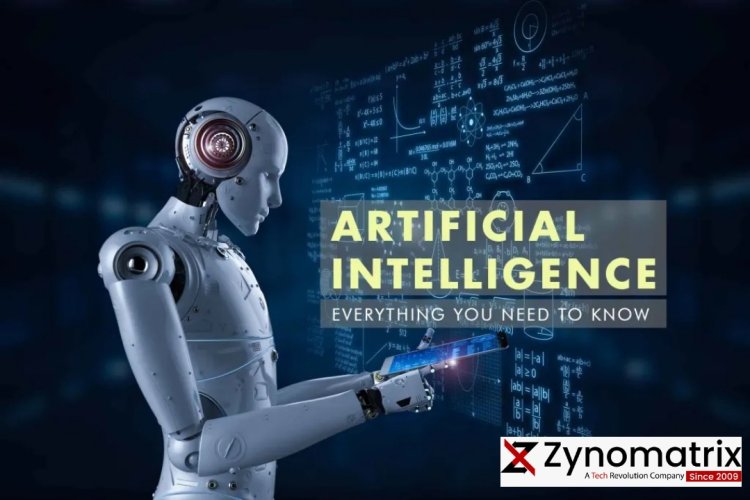The Rise of Artificial Intelligence in IT: Revolutionizing the Future.
This blog post delves into the rise of artificial intelligence (AI) in the field of information technology (IT) and explores its impact on various aspects of the industry. It discusses how AI-driven automation is streamlining processes, saving time and resources for IT professionals. The post highlights the role of AI in bolstering cybersecurity measures, with machine learning algorithms detecting anomalies and proactively preventing threats. It also examines the transformation of IT support and customer service through AI-powered chatbots and virtual assistants, enabling personalized interactions and troubleshooting.

Introduction:
Artificial Intelligence (AI) has emerged as a transformative technology that is revolutionizing various industries, and the IT sector is no exception. The rise of AI in IT has paved the way for unprecedented advancements, enhancing efficiency, productivity, and decision-making processes. This blog post explores the impact of AI on IT, highlighting its applications, benefits, and potential challenges.
1. AI-Driven Automation:
AI has enabled IT departments to streamline and automate numerous tasks, reducing human effort and increasing operational efficiency. Through machine learning algorithms and predictive analytics, AI can automate routine processes, such as system monitoring, data analysis, and software testing. This not only saves time and resources but also allows IT professionals to focus on more complex and strategic initiatives.
2. Intelligent Cybersecurity:
The evolving threat landscape calls for robust cybersecurity measures, and AI plays a vital role in bolstering IT defenses. AI-powered security systems can detect anomalies, identify potential vulnerabilities, and respond swiftly to cyber threats. Machine learning algorithms analyze large datasets to recognize patterns and behaviors, enabling proactive threat detection and prevention.
3. Enhanced IT Support and Customer Service:
AI-powered chatbots and virtual assistants have revolutionized IT support and customer service. These intelligent systems can understand and respond to user queries, troubleshoot technical issues, and provide personalized recommendations. Natural Language Processing (NLP) and machine learning algorithms enable chatbots to continually learn and improve their responses, enhancing the overall user experience.
4. Predictive Analytics and Data-driven Insights:
The proliferation of data in the IT landscape has created the need for advanced analytics tools. AI-driven predictive analytics algorithms can analyze vast amounts of data, identify patterns, and generate actionable insights. This enables IT professionals to make data-driven decisions, optimize resource allocation, and proactively address potential issues.
5. Intelligent IT Infrastructure Management:
AI is transforming IT infrastructure management by optimizing resource allocation, enhancing scalability, and improving system performance. Machine learning algorithms can dynamically allocate computing resources based on demand, predict potential bottlenecks, and automate capacity planning. This leads to improved efficiency, reduced downtime, and cost savings.
6. Ethical Considerations and Challenges:
The rise of AI in IT also raises important ethical considerations and challenges. The responsible and ethical use of AI must be prioritized, ensuring transparency, fairness, and accountability. Data privacy and security concerns, potential biases in AI algorithms, and the impact on the workforce are among the key challenges that need to be addressed.
What's Your Reaction?





















